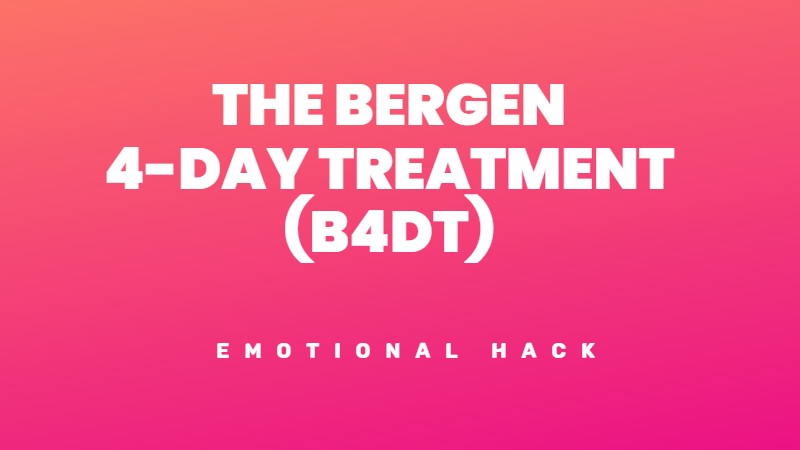Imagine having a personal coach on call 24/7, totally free. No scheduling hassles and expensive hourly rates, just customized guidance whenever you need it. Sound too good to be true? The power is literally at your fingertips. Open a blank email and get ready to become your own best coach.
Your inner coach through email journaling
The practice of coaching yourself through writing is grounded in proven psychological principles. Expressive journaling has long been recognized as a powerful tool for increasing self-awareness, processing emotions and facilitating change. When structured into an email format, this transformative practice gains even more potency:
The benefits of email self-coaching
Integrating this powerful practice into your life can yield profound benefits across multiple dimensions:
Getting started with email self-coaching
Implementing email self-coaching practice is simple. Cut through your mental clutter and coach yourself by having an email conversation with yourself. This technique forces you to step back and view your situation objectively. Here’s how it works:
This simple self-coaching method is so effective because it creates psychological distance. Separating your internal voices into two different “people” in a concrete conversation makes it easier to detach from the emotional turbulence and see things clearly.
Some helpful prompts to use in your self-coaching emails:
Separating your conflicting internal dialogues makes it easier to rise above the mental chatter and reconnect with your inner wisdom. You already know the answers. Self-coaching via email simply helps you hear them.
Some helpful email self-coaching frameworks:
Example of a self-coaching email thread
Here’s an example of a self-coaching email thread with three exchanges:
From: [email protected]
To: [email protected]
Subject: Feeling stuck and unsure about my career path
I’ve been in my current marketing role for 3 years now and while I’m doing well, I can’t shake this feeling that it’s not what I really want long-term. I’m not even sure what I do want though. I have some vague ideas but nothing concrete.
I’m scared that if I don’t figure this out soon, I’ll wake up in 10 years still stuck and unfulfilled. But I also worry about making any big changes. What if I choose the wrong path? What if I fail at something new? Shouldn’t I just be grateful for the stable job I have?
I know I’m overthinking this, but I don’t know how to move forward. I feel paralyzed by indecision and lack of clarity. How do I get unstuck?
From: [email protected]
To: [email protected]
Subject: Re: Feeling stuck and unsure about my career path
First, take a deep breath. It’s completely normal to have doubts and confusion about your long-term career path. Most people go through periods of questioning and exploring. It doesn’t mean anything is wrong with you or your current situation.
You don’t have to have it all figured out today. Just start the exploration process. Trust that by taking small consistent steps forward, your path will become more clear over time. You’ve got this!
From: [email protected]
To: [email protected]
Subject: Re: Feeling stuck and unsure about my career path
Thank you, this helps a lot. You’re right, I need to stop pressuring myself to have it all figured out at once. I can start small and see what resonates.
You’ve given me a lot to think about and some clear next steps to take. I feel lighter already. Time to get curious, trust myself, and see where this goes. Thank you for helping me get out of my own way!
Tips for your email self-coaching practice
- Experiment with email formats and structures to find what works best for your reflection style. Some prefer bullet points and short insights, while others benefit from long-form emotional processing. Adapt the templates to suit your needs.
- Use descriptive subject lines to help you quickly scan your coaching emails. Include the date, topic, and any relevant emotion or progress cues. For example: “7/1/23 – Career Reflection” or “10/15/23 – Health Check-In”.
- Don’t just focus on problems and challenges in your emails. Be sure to celebrate your wins and insights too! Regularly highlighting what’s going well will boost your motivation and give you a more balanced perspective on your growth.
- While daily check-ins are a great starting point, you might find that a mid-week and weekend reflection cadence works better for your schedule. Some prefer morning emails; others benefit from evening reflections to process their experiences. Find your own best practices!
- Protect your email coaching time like any other important meeting. Block off dedicated space in your calendar for focused reflection. Treat your self-coaching sessions as sacred appointments with yourself.
- Don’t forget to periodically review your entire coaching email history to mine for patterns, progress, and insights. Set quarterly or yearly reminders to read back through your messages and harvest the wisdom of your growth journey.
Use AI when your stuck
Don’t hesitate to bring in AI chatbots when you feel stuck or need an outside perspective. AI chatbots can serve as thought partners to help you gain clarity, generate new insights, or brainstorm solutions. Copy/paste the email content/thread into your chat interface and ask for clarification, help and support. Here are some examples:
Looping in AI support can enrich your self-coaching practice with novel perspectives and evidence-based strategies. Think of the AI chatbot as an on-demand thought partner to help expand your thinking and keep you moving forward.
Sagens kerne
Self-coaching via email may seem strange at first. You might feel silly typing out your deepest fears and dreams. You might cringe at your attempts to be your own cheerleader. That’s okay. Embrace the awkwardness and keep going.
No one knows you better than you know yourself. No one else has lived through your specific experiences, struggles and successes.
Coaching yourself through this process affirms your inner wisdom. Every email brings greater self-understanding. Every reply makes you stronger.




Giv feedback om dette